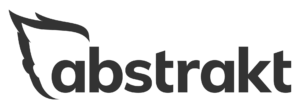
B2B appointment setting is an incredibly impactful lead generation strategy. When it doesn’t work for businesses, it’s often because they don’t know how to do it effectively. Luckily, there are some B2B appointment setting tips for your sales and marketing teams to follow to accelerate your approach and get the results you want.
In this blog, we’ll cover the following topics:
B2B Appointment Setting Definition
B2B appointment setting is a strategic sales development process where a specialized team or outsourced sales and marketing firm identifies and engages with potential business clients on behalf of a company.
The primary goal of B2B appointment setting is to secure sales meetings between a company’s sales representatives and decision-makers within target businesses. This approach streamlines the sales process, allowing sales execs to focus on closing deals rather than prospecting.
How Does B2B Appointment Setting Work?
B2B appointment setting plays a pivotal role in lead generation. It efficiently connects businesses with potential clients who could benefit from their product or service offerings.
Here’s how B2B appointment setting works:
- Step 1. Identify Target Audience: The process begins by defining the ideal customer profile and identifying the specific industries, companies, and decision-makers that align with the client’s offerings.
- Step 2. Gather Data and Research the Market: A dedicated lead generation team conducts extensive research to gather accurate data about potential buyers in your target market.
- Step 3. Build a List of Prospects: Once appointment setting teams gather crucial market data, it’s time to build a list of prospects. This is often done using sales prospecting technology.
- Step 4. Reach Out to Prospects: Appointment setting teams initiate contact through various channels, such as cold calling, emailing or social media outreach, using compelling messaging derived from the client’s unique selling points.
- Step 5. Qualify and Score Leads: Prospects who express interest or engage in a conversation are further qualified to ensure they meet predefined criteria, such as budget, authority, need, and timeline (BANT). While BANT is popular, there are other lead qualification criteria that appointment setting teams can follow.
- Step 6. Nurture Relationships With Qualified Prospects: After leads are qualified, but aren’t ready to buy yet, appointment setters nurture relationships with decision-makers through email drip campaigns and making warm phone calls.
- Step 7. Schedule High-Converting Sales Meetings: Once a prospect is deemed qualified and interested, the appointment setting team schedules a meeting or call between the prospect and the client’s sales representatives.
- Step 8. Sales Meeting Held: The sales meeting is held between a decision-maker and a member of your internal sales team, aiming to convert the sales opportunity into a customer.
- Step 9: Present Appointment Setting Teams With Feedback: After the meeting is held, sales execs must give the appointment setting team feedback on how the meeting went, sharing feedback on potential rooms for improvement in the future.
Best B2B Appointment Setting Tips to Follow
While B2B appointment setting is a valuable asset to business growth efforts, there are some best practices for outbound lead generation teams to follow.
Some of the best B2B appointment setting tips to follow include:
- Thoroughly Understand Your Company’s Products and Services
- Practice Targeted List Building
- Craft Compelling, Conversion-Driven Messaging
- Implement a Multi-Channel Outreach Strategy
- Follow a Proven-Effective Talk Track
- Prepare for Objections Ahead of Time
- Identify and Follow Streamlined Lead Qualification Criteria
- Invest in Continuous Training
- Align Lead Management With CRM Software
- Use Metrics to Measure Performance
Thoroughly Understand Your Company’s Products and Services
Sales appointment setters should be well-versed in what your company offers. Having this knowledge empowers them to have meaningful conversations with prospects, highlighting how your solutions can solve their specific challenges. It’s all about conveying value and addressing their pain points in a way that resonates with the prospect.
Practice Targeted List Building
When building prospect lists, it’s crucial to have a mix of quality and quantity. Therefore, you must research and select prospects specifically based on their product or service interests, ensuring they match the ideal customer profile for that particular pitch or campaign. This approach guarantees that appointment setting efforts are directed toward those most likely to benefit from your products or services, increasing the chances of impactful engagements.
Craft Compelling, Conversion-Driven Messaging
Personalized messaging is key to B2B appointment setting. BDRs and SDRs must craft concise pitches that emphasize how your offerings solve each prospect’s unique challenges. Tailoring the message shows that your company understands their pain points and positions your solutions as the perfect remedy they’ve been seeking, increasing the likelihood of a conversion.
Additional Reading Materials: How to Write Compelling Marketing Ad Copy
Implement a Multi-Channel Outreach Strategy
Appointment setting teams should diversify outreach methods. Combine sales calls, cold emails, social media outreach, and even direct mail to connect with prospects. Using various channels increases your chances of getting a prospect’s attention, boosting engagement. It’s all about meeting them where they’re most comfortable and receptive to your message.
Follow a Proven-Effective Talk Track
Appointment setter talk tracks (or scripts) are valuable tools for prospect outreach, especially when it comes to cold calling. BDRs and SDRs should craft them to provide a clear roadmap for the conversation, while also allowing for natural, dynamic interactions. Anticipate and incorporate responses to common objections and questions. This balance ensures that our representatives can confidently navigate any conversation while staying authentic and engaging.
Our SDRs use a proven-effective cold call track to move leads through the pipeline—and we want to share it with you. Download our Cold Call Talk Track guide to gain access to the best scripts that result in conversions.
Prepare for Objections Ahead of Time
SDRs should be prepared and have effective objection-handling skills. When objections arise, they should gracefully pivot the conversation by emphasizing the value of the meeting. By addressing concerns with confidence and highlighting the benefits, they can turn objections into opportunities and secure those crucial appointments.
Identify and Follow Streamlined Lead Qualification Criteria
As mentioned earlier, appointment setting teams should implement a lead qualification framework, such as BANT or another lead qualifying strategy. Assessing prospects on their intent to buy ensures that the meetings set are with genuinely interested and ready to buy. This efficiency in targeting increases your chances of converting those meetings into sales.
Invest in Continuous Training
Investing in ongoing training is essential to have a consistently effective B2B appointment setting strategy. It not only hones SDRs’ skills, but also keeps them updated on industry trends and best practices. This continuous improvement ensures that our team remains adaptable, knowledgeable, and effective in the ever-evolving world of B2B appointment setting.
Don’t have the time, money, or resources to invest in continuous SDR training? Abstrakt’s outsourced SDRs have weekly training to improve their sales skills, giving clients the most effective B2B appointment strategy. Learn more about our B2B appointment setting solution here.
Align Lead Management With CRM Software
An appointment setting team’s lead management software should effectively integrate with your company’s CRM. This helps B2B appointment setting teams keep track of every interaction, schedule timely follow-ups, and maintain accurate prospect records. This organization and accessibility of data empower them to nurture leads effectively and ensure that no opportunity slips through the cracks.
Use Metrics to Measure Performance
Tracking appointment setting KPIs is crucial for staying on track with sales quotas and generating consistent revenue. Appointment setting teams should constantly monitor conversion rates, response rates, and meeting-to-opportunity ratios. These metrics provide insights into what’s working and what needs improvement. By staying data-driven, your growth team can fine-tune their strategies, ensuring they’re always on the path to achieving pre-determined goals.
SDRs and appointment setters can effectively connect with prospects, generate high-quality leads, and contribute significantly to the growth of the business by following these proven-effective B2B appointment setting tips. It’s a dynamic process that requires continuous learning and adaptation to succeed in the competitive B2B landscape.
Why You Should Outsource B2B Appointment Setting
Outsourcing B2B appointment setting can offer numerous benefits for businesses seeking to streamline their sales processes and generate high-quality leads.
Here are some of the core reasons to consider outsourcing your B2B appointment setting efforts:
- Sales expertise and specialization: Outsourced appointment setting companies specialize in lead generation and appointment setting. They have the expertise, resources, and experience to efficiently identify and engage with prospects, increasing the chances of success.
- Cost-efficiency: Outsourcing can be more cost-effective than hiring and training in-house SDRs. You can avoid expenses related to salaries, benefits, office space, and ongoing training.
- Time savings: Outsourcing frees up your internal sales team’s time to focus on closing deals rather than spending hours on prospecting and appointment setting, improving overall productivity.
- Access to sales tools and technology: Outsourced firms often have access to advanced tools and technologies, such as CRM systems, lead databases, and automated dialers, which can enhance the efficiency of the appointment setting process.
- Greater scalability: Outsourcing allows you to scale your lead generation efforts up or down based on your business needs, providing flexibility in managing lead flow.
- Reduced risk: Outsourcing mitigates the risk associated with hiring and training in-house staff. You can quickly adapt to market changes or shifts in strategy without the burden of layoffs or retraining.
- Quicker results: Experienced appointment setters can hit the ground running, delivering quicker results compared to building an in-house team from scratch.
- Focus on everyday business functions: By outsourcing, you can focus on your core business activities, leaving lead generation and appointment setting to experts in the field.
- Quality assurance: Reputable outsourcing firms are committed to delivering high-quality leads. They often have rigorous quality control processes in place to ensure that appointments are with qualified prospects.
- New market insights: Outsourcing companies can provide valuable market insights and feedback, helping you refine your sales strategy and messaging based on real-world interactions with prospects.
- Measurable results: Outsourced firms typically provide detailed reporting and analytics, allowing you to track the performance of your lead generation campaigns effectively.
- Qualified appointment guarantees: Some outsourcing companies offer performance-based agreements, guaranteeing a certain number of appointments or leads, providing peace of mind.
Key Takeaways
B2B appointment setting is incredibly impactful for business growth, but many businesses don’t know how to do it effectively, nor do they have the time or resources to consistently stay up to date on appointment setting best practices. Luckily, there are outsourced B2B appointment setting companies that empower growing businesses to have a growth strategy that yields results for the long term. And that’s where Abstrakt comes in.
At Abstrakt, our B2B appointment setting teams include high-performing SDRs, sales managers, and other vital sales experts to build and implement an outbound lead gen strategy that generates revenue—all for less than the price of a single internal salesperson.
When you’re ready to put your B2B appointment setting efforts in the hands of business growth experts, contact the growth experts at Abstrakt!


